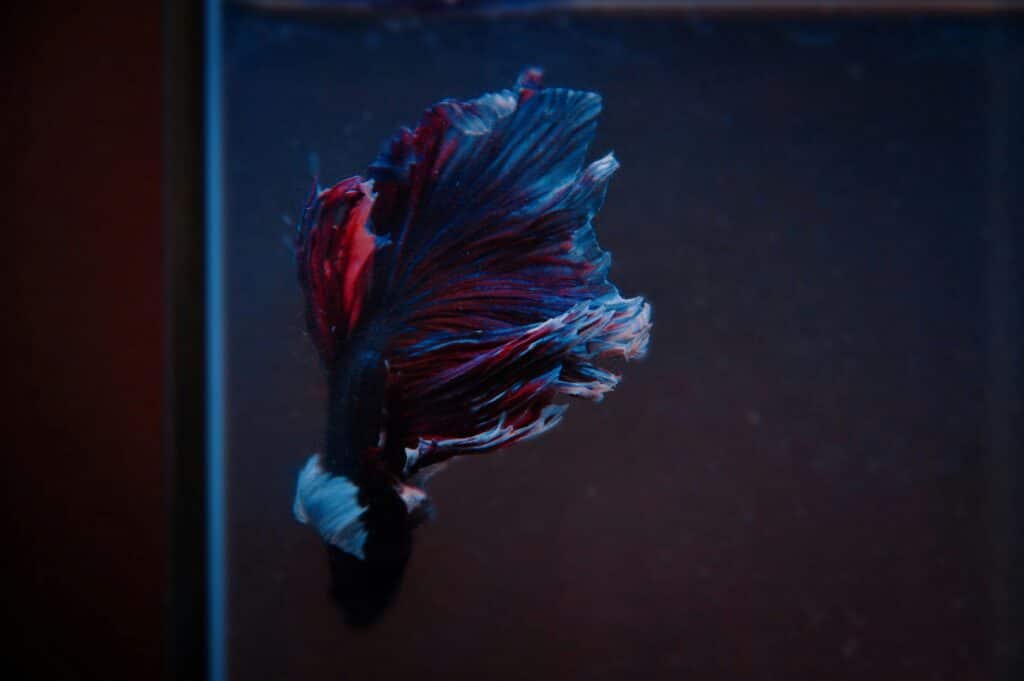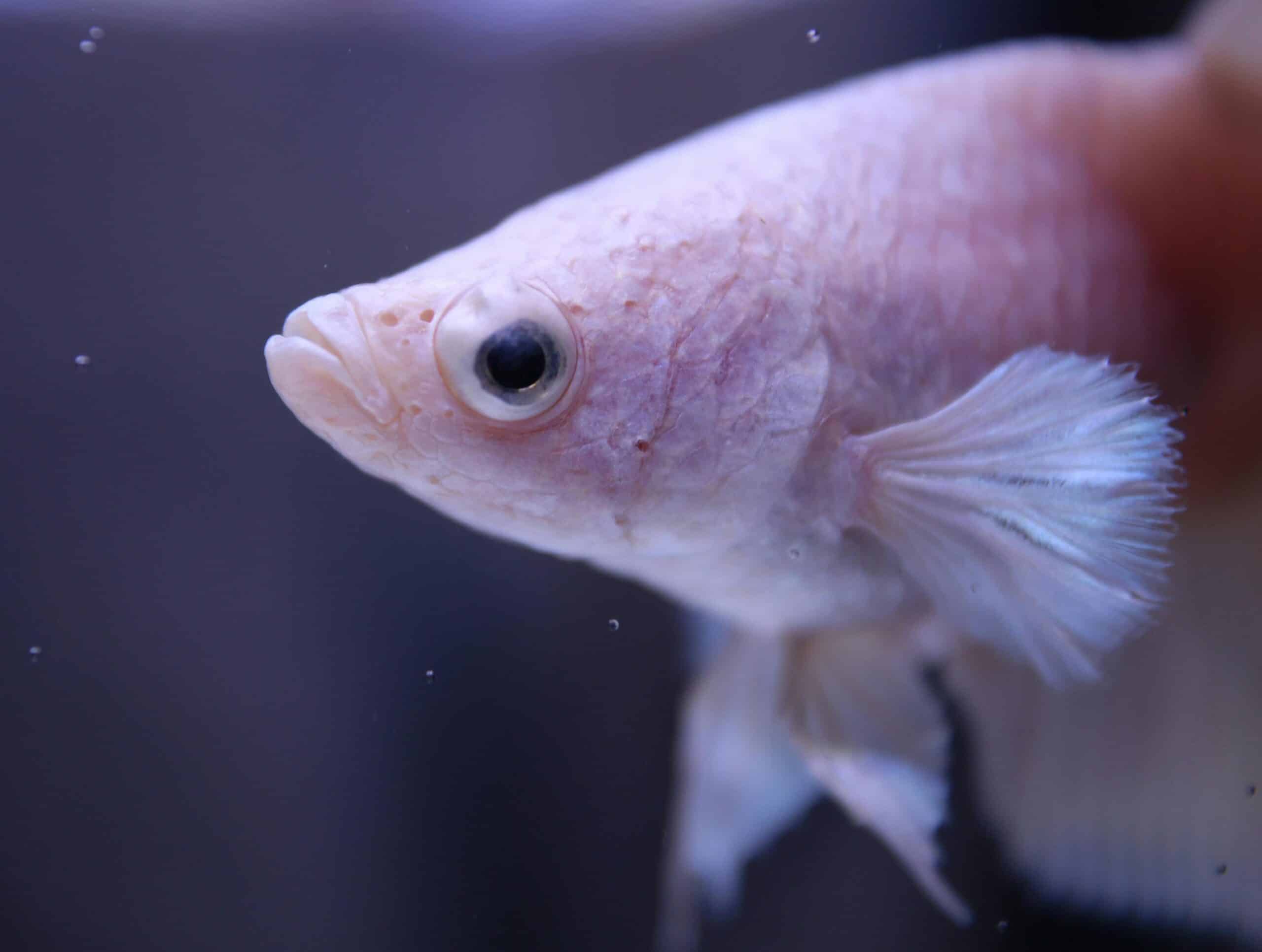Have you ever wondered about those gorgeous, feisty little swimmers known as betta fish? They’re popular, but there’s much more to them than just their bright colors and flair for drama. Today, I want to talk about something quirky. Yes, we’re diving into whether betta fish have teeth! It might sound odd, but stick with me; it’s fascinating. So, let’s look closer and uncover some surprising facts about these aquatic beauties. Ready to bite into this topic?
Do Betta Fish Have Teeth?
Yes, betta fish do have teeth! These vibrant and often misunderstood creatures are equipped with small, sharp teeth vital to survival. Though these teeth are minuscule and typically invisible to the naked eye, they are adequate for their needs.
In the wild, betta fish are predatory by nature. They mainly eat small insects, larvae, and even tiny fish. Their teeth, a crucial tool in their survival kit, allow them to expertly grasp and immobilize their prey before swallowing it whole. This efficient consumption of nutrients is vital for their thriving.
Understanding that bettas have teeth helps explain some of their aggressive behaviors. Known for their territorial nature, especially the males, bettas often use their teeth during conflicts with other fish or when defending their space. This behavior is more about asserting dominance and less about actual predation.

What Do Betta Teeth Look Like?
Betta fish teeth are intriguingly small and almost invisible to us without magnification. Still, they are ideally suited to their predatory lifestyle. These teeth are sharp and pointed, similar to tiny needles. They are designed to quickly grip and hold onto prey, which is essential for bettas, given their live food diet in the wild.
These teeth are not like the flat, grinding teeth you see in herbivorous fish; they are more conical and forward-facing. This shape helps bettas snap up their food efficiently. Each tooth is only a fraction of a millimeter in size.
Interestingly, betta fish also have quite numerous teeth. They line the edges of both the upper and lower jaws, forming a serrated arrangement that ensures a good grip on slippery prey. This arrangement is quite effective for their feeding habits, allowing them to tackle a variety of small aquatic creatures.
Does Betta Fish Bite?
Yes, they can bite, but there’s more to it than just chomping down. Let’s dive into when and why these vibrant swimmers might decide to give a little pinch.
Bettas are known for their bold personalities—especially the males, who like to claim their space. While they mainly show this fiery spirit towards other bettas, don’t be too surprised if they occasionally mistake your finger for something else. But don’t worry, a betta’s bite is usually more out of confusion than aggression.
When Might a Betta Bite?
- During Feeding Time: This is the most common bite scenario. Imagine you’re hand-feeding your betta some tasty morsels. It’s easy for them to get overexcited and nip your finger, thinking it’s part of the feast.
- While Cleaning the Tank: If you move things around in your betta’s home, they might get a little defensive. It’s their territory, after all, and they might gently nibble to say, “Hey, that’s my spot!”
Does Betta Fish Bite Hurt?
Given the tiny size and sharp nature of betta fish teeth, you might wonder whether a bite from one of these fish could actually hurt. The answer is that while a betta fish can bite, it’s unlikely to cause pain. At most, a betta bite feels like a quick pinch or a light nip. It’s more surprising than painful, given that it’s not something you might expect from such a small and often placid-looking fish.
As I said above, most betta bites occur during feeding times when a betta might mistake your finger for food. This is especially true if you hand-feed your fish, which some owners do to build a bond or watch their bettas interact more closely with them. In the excitement of spotting food, a betta might nip without aggression, thinking it’s catching a meal rather than interacting with its owner.
It’s also worth noting that a betta fish bite lacks any mechanism to inflict severe damage. They don’t have the jaw strength or tooth size to puncture human skin deeply. The sensation is closer to a brush against a small bristle brush than a bite from a more substantial animal.
For most people, the experience of a betta bite is more startling than painful. It’s a brief encounter that leaves no lasting harm. Owners learn quickly that while these bites are harmless, it’s wise to be cautious during interactive feeding to avoid unnecessary nips.
Conclusion
In summary, while betta fish have teeth, they’re not quite what you might expect. These tiny, sharp tools are crucial for their survival in the wild, aiding in capturing and consuming prey. Should they happen, Betta bites are minor and more surprising than painful, reflecting the fish’s instinctual behavior rather than aggression toward humans. Understanding these aspects of betta fish can enhance your appreciation of their complex nature and help provide them with a suitable environment in captivity.
Frequently Asked Questions (FAQs)
Q: Can betta fish bite other fish?
A: Yes, betta fish can and sometimes do bite other fish, especially if they feel threatened or compete for territory. This is more common among males who are known for their aggressive behavior towards other males.
Q: How should I feed my betta fish to avoid getting bitten?
A: When offering food to your betta, it’s best to use tools like feeding tweezers or a feeding stick. This helps keep your fingers away from their mouths and minimizes the risk of accidental bites during feeding times.
Q: What should I do if a betta fish bites me?
A: If a betta fish bites you, there’s usually no need for any specific action, as their bites are not harmful. It’s a good practice to wash your hands after handling your fish or working in their tank to keep you and your betta healthy.
Q: Will a betta fish’s bite draw blood?
A: A betta fish bite is unlikely to draw blood due to their small teeth and limited jaw strength. Most bites feel like a quick nip that doesn’t break the skin.
